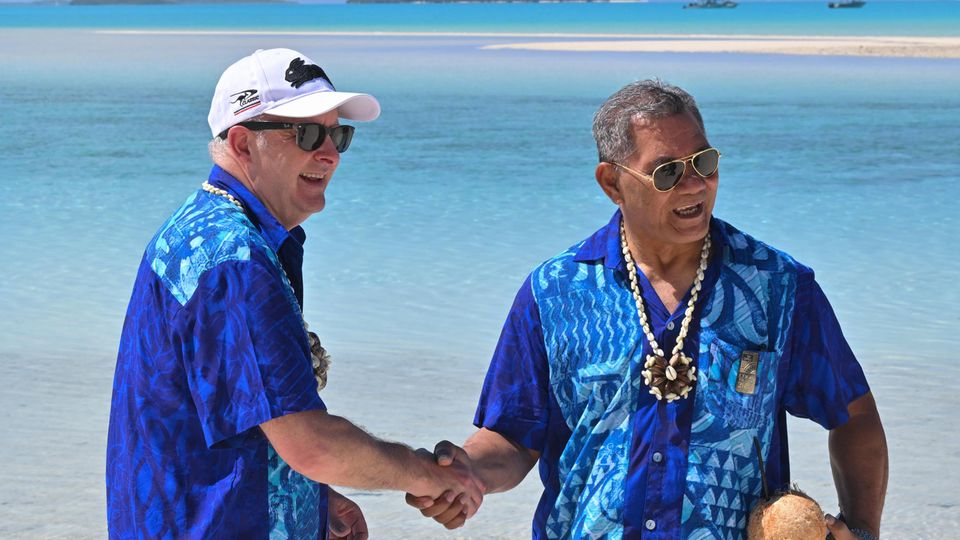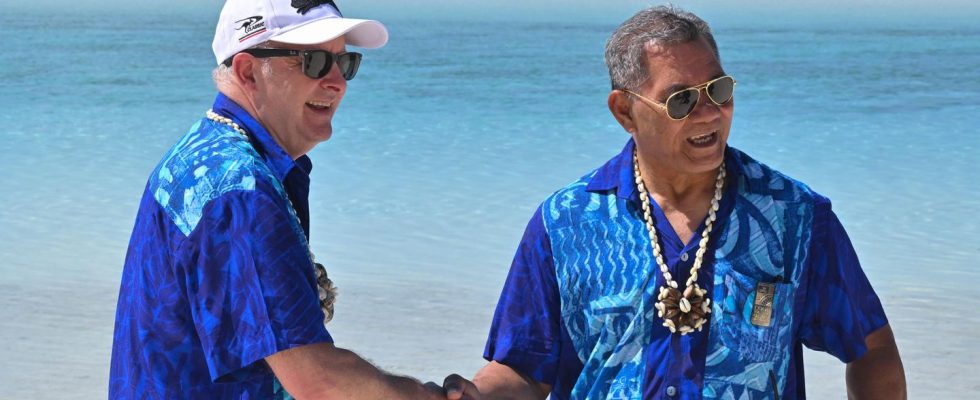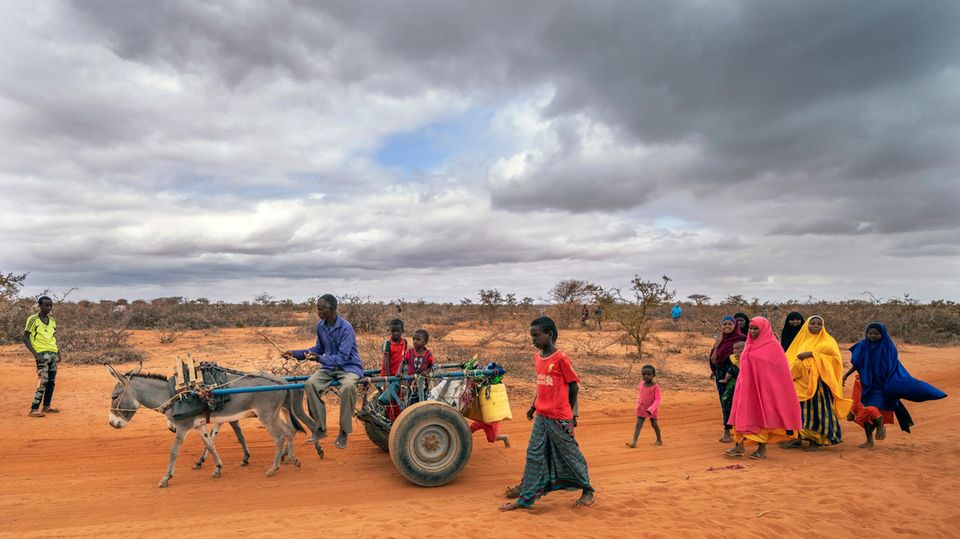Island nation in the Pacific
Driven out by rising sea levels: Australia offers climate asylum to residents of Tuvalu
Watch the video: Australia offers residents of Tuvalu admission as climate refugees.
Australian Prime Minister Anthony Albanese signed a bilateral agreement with Tuvalu on Friday aimed at protecting the tiny island nation from climate change and countering China’s influence in the Pacific. The head of government wrote on Friday on the social media website X, formerly Twitter: “This new partnership recognizes climate change as the greatest threat to the livelihoods, security and well-being of the people of Tuvalu Climate change, working on work rules and safety.” Australia will introduce a special visa for up to 280 Tuvalu residents annually, representing about 2.5 percent of Tuvalu’s 11,200 residents. Funds will also be made available for land reclamation in Tuvalu in order to increase the area of the capital Funafuti by around 6 percent.
Hardly any place is as affected by climate change as the South Sea archipelago of Tuvalu. In 100 years, the home of 11,000 people could have sunk. Australia offers them refuge.
In the future, Australia wants to accept people from the South Pacific state of Tuvalu affected by climate change and grant them permanent residency rights. The historic agreement was signed on Friday by Australian Prime Minister Anthony Albanese and Tuvalu Prime Minister Kausea Natano at a meeting of Pacific island nations in the Cook Islands in the South Pacific. This is the first time Australia has offered residency or citizenship rights to a state due to the threat of climate change, the ABC broadcaster reported.
Tuvalu will sink into the sea
Australia initially wants to accept 280 citizens from the island nation every year and enable them to live, study and work in the country. “As a low-lying country, Tuvalu is particularly affected by climate change,” Albanese said at a news conference. “Its existence is threatened. I believe that developed nations have a responsibility to provide assistance, and that is exactly what we are doing.”
In the South Pacific, sea levels are rising particularly quickly as a result of global warming. Tuvalu – like other islands in the region – will be largely flooded in the next few decades. Two of its nine atolls are already largely flooded. Experts estimate that the archipelago could be uninhabitable within 80 years and completely submerged in the sea within 100 years. The approximately 11,000 residents will soon have to look for a new home.

Historic agreement: Australian Prime Minister Anthony Albanese (l.) and his counterpart from Tuvalu, Kausea Natano, on the Cook Island of Aitutaki
© Mick Tsikas / AAP Image / AP / DPA
The agreement also admitsthat action was not taken quickly enough in the fight against climate change and that it is already clearly noticeable. Australia’s economic dependence on climate-damaging fossil fuels coal and gas has long been a point of contention with its Pacific neighbors, which are already struggling with the massive economic and social costs of global warming
.
5 pictures
Tuvalu consists of nine islands and is a member of the Commonwealth. The archipelago lies north of New Zealand and east of Papua New Guinea. The US has already reached similar agreements with sinking Pacific states, including Palau and the Marshall Islands. This is very much about economic support in return for military access to strategic maritime areas.


